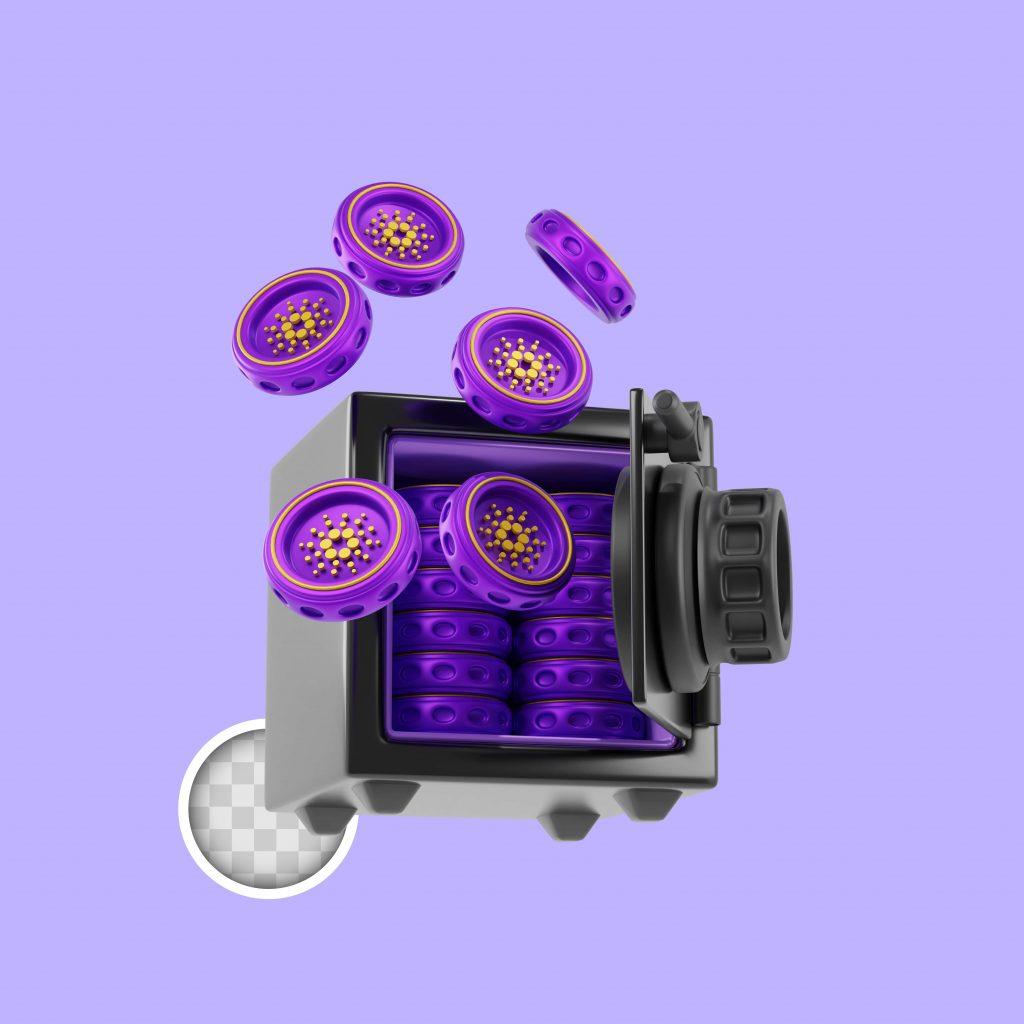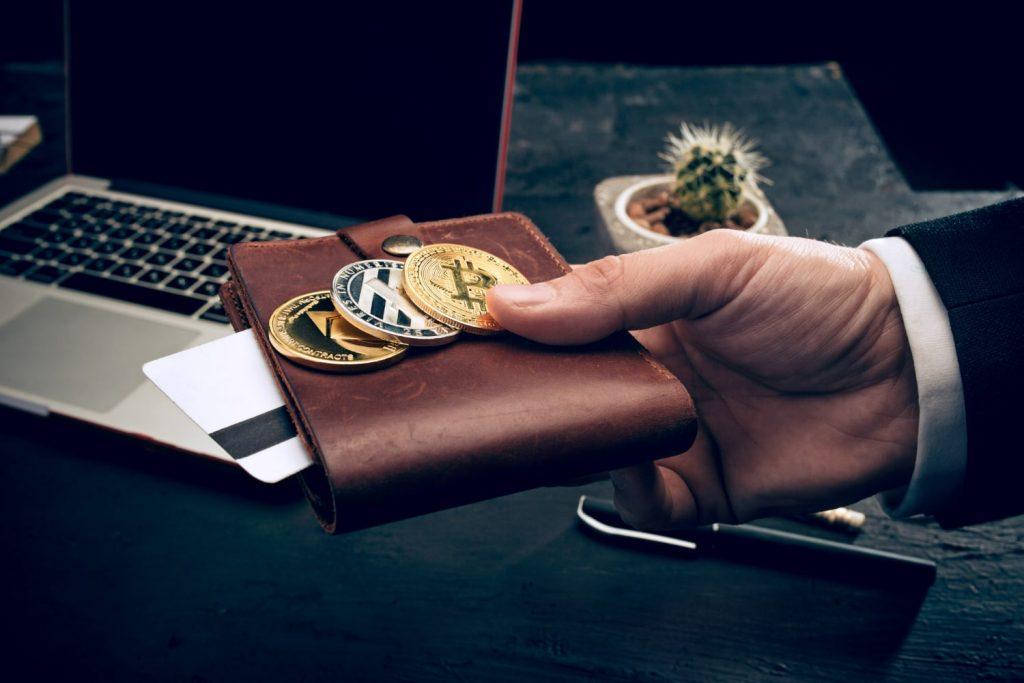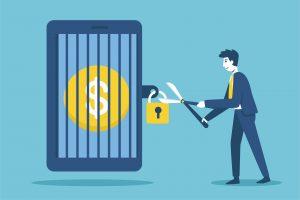The allure of cryptocurrency has mesmerized people since its inception. But the two issues that seem highly technical—how do you buy Cryptocurrency and where do you keep the cryptocurrency you buy—may terrify individuals. However, doing so can be as simple as downloading an app on your phone.
Even though programmers and developers provided much of the early support for cryptocurrencies, today almost everyone is considering them as investments. In this situation, there are only a few fundamental things you need to understand about the advanced technologies in order to store your cryptocurrency safely.
What are the Safest Ways to Store Crypto?
The most crucial factor to consider when purchasing bitcoin is how to maintain it. Cryptocurrency is not protected in the same way that money in a checking account or capital invested through a brokerage is. Crypto custody is your obligation as the proprietor. You may store cryptocurrencies in various ways, including hardware wallets, software, and even a plain sheet of paper. Once you understand each storage mechanism better, you may select the wallet (or wallets) that is the safest way to store crypto.
Where is the Best Place to Hold Crypto?
It may be highly complicated to store and manage your bitcoin because of private keys, restoration phrases, and the lack of dispute mechanisms. When you consider how important your crypto has become over time and the reality that exchanges are irrevocable, this situation only worsens. For newcomers and seasoned investors, this brief reminder on the best places to keep your Cryptocurrency explains everything you ought to know.
Should I Keep My Crypto on Exchange or Wallet?
If you’re new to cryptocurrency investment, holding your bitcoins in the wallet offered by your exchange may appear to be the most convenient alternative. You aren’t required to bother about anything because the coins you buy are automatically deposited to the exchange-generated wallet, correct? In reality, that is not the case. The tools you employ to keep your bitcoins are only as secure as the instruments themselves.
Although exchange-generated wallets provide some protection, they are not entirely secure. Thieves have been successful in stealing billions of dollars from exchange-provided wallets in recent years. Consider Mt. Gox breach, in which fraudsters took 850,000 Bitcoins from the exchange in 2011, or even the Coincheck theft, in which $530 million in NEM coins were hijacked in 2018. These are two of the most significant hacks in crypto history. Your Cryptocurrency is as secure as how you keep it.
While you may potentially keep Cryptocurrency straight on the exchange, it is not recommended unless you do so in small amounts or want to trade them often. Therefore, it is advised that you withdraw the bulk of more significant sums to a crypto wallet, whether hot or cold. In this manner, you keep possession of your private keys and complete control and power over your personal funds.
Does My Crypto still Grow in a Wallet?
Yes, the value of your Cryptocurrencies will fluctuate over time while held in a wallet. Their value will fluctuate in tandem with the market. You will benefit if the price of Cryptocurrency rises. Whether you keep your cryptocurrencies in your own wallet or on an exchange makes no difference. This is true for all wallets, including paper wallets, hardware wallets, and software wallets. It makes no difference to the worth of your coins where you keep them. Their value will vary in the same way, whether held on an exchange or in a wallet. Coins are not required to be traded to be valuable. Therefore, if the value of Bitcoin rises, your coins will be valued more, regardless of where you keep them.
How to Store Crypto in Cold Storage?

The cold storage option for Cryptocurrency is undoubtedly for you if you’re considering how to keep bitcoin offline. Cryptocurrency cold storage is continually expanding and gaining more and more recognition. However, it is still far from being as common and utilized as hot wallets. There are several valid explanations for this.
Firstly, the safest method to store your cryptocurrencies right now is in cold storage. The digital currency is kept in a tiny device that may be hidden away in a strongbox, secure, or any other conceivable hidden spot. The fact that these devices don’t need an internet connection to operate effectively eliminates the majority of the danger of theft, deception, and other problems.
How to Protect Crypto from Hackers?
With cryptocurrencies, we act as our bank. That entails duty, including the obligation to safeguard our possessions. These assets are virtual, and you’d better believe digital assets are hackable. A hacker can enter your bank (your cryptocurrency wallet) and steal what is yours, much like a bank can be stolen. Nobody to blame and no protection. You may take several steps to safeguard your cryptocurrency holdings if you store them in wallets. The best way to keep your cryptocurrency safe is by putting two-factor verification to use, avoid using public WiFi and use caution when downloading files. Malware may be linked to files, and once it’s on your computer, it can carry out a range of evil orders.
How to Safely Store Cryptocurrency
Keeping your Cryptocurrency secure is only the beginning. Additionally, be on the lookout for anybody attempting to con you into disclosing your seed phrase, making fraudulent investments, or unintentionally granting them access to your exchange account. You can take the following actions to help keep your crypto safe:
- Never divulge your seed phrase.
- Recognize phishing and spamming emails and messages since it might be how a fraudster contacts you at first.
- Avoid keeping your seed word on a laptop or cloud backup provider that is frequently online.
- Store long-term supplies in a chilly environment.
- Never reveal your multifactor authentication (MFA) key if you use a crypto exchange.
- Before linking your wallet or installing software, double-check the website’s URL.
Storing Cryptocurrency in a Custodial Wallet
Custodial wallets are centralized companies, like bitcoin exchanges, that provide wallet services. Some advantages of custody wallets include less user accountability for managing private keys. A user effectively outsources their private keys to a company when they give that company possession of their wallet. Users trust the company to keep the wallet’s private key safe because they are not responsible for securing it themselves.
Storing Cryptocurrency in a Cold Wallet
Cold wallets use real hardware resembling a USB drive to store Cryptocurrency offline safely. These wallets are connected to a private, encrypted key, a numeric number that enables the owner to unlock the wallet and gain access to its virtual assets. These physical wallets are less vulnerable to hackers and a safer alternative to hot wallets. Naturally, cold wallets have a disadvantage as well. Users risk losing access to their Cryptocurrency if they forget their wallet passwords. Crypto cold storage options are one of the safest crypto storing places.
Storing Cryptocurrency in a Hot Wallet
These wallets save cryptocurrency on internet-enabled devices, most frequently a smartphone, but also on laptops and tablets, allowing instant access and transactions for the owner. Consider a hot wallet to be similar to a bank account where you have less money available for daily spending. Still, because it’s digital, it’s less safely protected than a cold wallet.
Best Practice for Storing Cryptocurrencies
Investors should be aware of the potential for theft, fraud, and asset loss due to the unique characteristics of cryptocurrencies, including how they are stored and exchanged across internet platforms. Although safeguarding these digital assets is complex, several best practices can help you keep your digital money secure.
- When feasible, keep data offline and use two-factor verification
- Be Wary When Using Mobile Devices
- Encrypt Data
- Be vigilant and perform your due diligence.
Conclusion
The process doesn’t end with acquiring the Cryptocurrency. Yes, you may leave the Cryptocurrency at the exchange. If you trade frequently, this might be your best choice. However, look at any graph of cryptocurrency prices over time. You can see that despite significant volatility in shorter time frames, the price of Bitcoin or the worth of Ether has kept its worth over the long term.
This implies that to keep your money safe for a longer time, you must keep it in a crypto wallet. Since you have to fundamentally rethink how you handle your money, correctly storing your bitcoin might seem like a bizarre notion. This brief tutorial on the safest ways to store crypto should have filled in some gaps in knowledge or served as a quick reminder of best practices.






